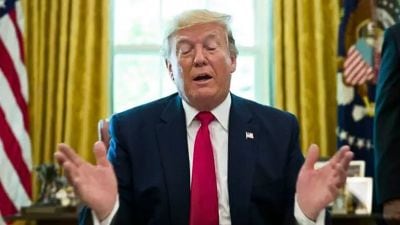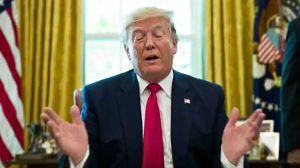Sonia for alliance first, leadership later
Sonia Gandhi concluded a visit to Mumbai today with a rare press conference that had her in a relaxed and expansive mood, asserting the Cong...

Sonia Gandhi concluded a visit to Mumbai today with a rare press conference that had her in a relaxed and expansive mood, asserting the Congress readiness to form alliances with ‘‘like-minded’’ parties without allowing the leadership issue to come in the way.
Flanked by her party’s deputy leader in the Lok Sabha Shivraj Patil, Maharashtra Chief Minister Sushilkumar Shinde and AICC general secretary for the state Vayalar Ravi, Sonia underlined her willingness to firm up alliances against a resurgent BJP. The Congress, she pointed out, was working with other parties in governments in Maharashtra, Bihar, Jammu and Kashmir and Meghalaya.
‘‘There are a number of secular-minded parties with whom we can work. In Uttar Pradesh, there are SP and BSP and other smaller parties. The situation is fluid and we are to keep in touch with each other, put up a secular alliance.’’
At ease throughout the press conference, the only time Sonia looked perturbed was when she was asked about the stand taken by other parties regarding her leadership. Reacting sharply, she said: ‘‘Whether I am acceptable as the prime minister is a choice that has to be made by the people of this country and not by me. We do not interfere with the internal matters of other parties and ask them to choose leaders acceptable to the Congress. So why should they decide who the leader of the Congress should be?’’
Asked about NCP president Sharad Pawar’s statement that his party was ready to set aside the contentious issue of her foreign origin, Sonia said: ‘‘I am not aware of his statement, but we have to put aside our differences if we want to defeat anti-secular forces.’’
She informed she would meet Pawar to work out the modalities of an alliance. ‘‘I have been meeting Pawarji with other leaders in Parliament. I have also met him at my home.’’ However, she ruled out the likelihood of a merger with the NCP.
The Congress president also dismissed talk about the lack of a strong second rung of leadership in the party. ‘‘When the media talks about the second-rank leadership in the BJP, they are referring to a few persons. As they are ministers, their visibility is more. The Congress too has young dynamic leaders but they are not visible enough,’’ she said.
But she agreed that the party had to pull up its socks and concentrate on wooing segments which have moved away from the Congress. Admitting that the Congress base among Dalits and tribals had ‘‘diminished’’, she said the party has ‘‘held internal workshops and is studying how to get its support back’’.
In a clear assessment of the debacle in Rajasthan, Chhattisgarh and Madhya Pradesh, she said the assembly polls had taught the party that it had to market itself aggressively. ‘‘We could not match the publicity campaign of the BJP.’’
Maintaining that Congress-ruled states had contributed to social infrastructure and empowerment, Sonia said: ‘‘The people’s aspirations are more and we could not fulfil them, but we have learnt our lessons.’’
The interaction was peppered with Hindi words. Asked about problems in the party’s units in Kerala, Punjab and Gujarat, she replied that the Congress was a ‘‘huge family’’ and every family had instances of ‘‘tu tu main main (fights)’’.
A question on the reasons why her daughter Priyanka had not yet joined active politics amused her. ‘‘If my daughter or son wants to be in politics,’’ she laughed, ‘‘it is their decision. You must ask them.’’
Sonia denied that Congress CMs or state leaderships did not enjoy the liberty to decide matters independently. ‘‘Ours is a very democratic party and everyone has freedom. If someone says something needs the approval of the high command, it indicates that they are shielding their inefficiency by hiding behind the high command. I do not control everything.’’
She also put a lid on the demand by legislators from Vidarbha for separate statehood by stating that the party was discussing a different coordination committee on the lines of that in Telangana in Andhra Pradesh.
Photos





- 01
- 02
- 03
- 04
- 05


























